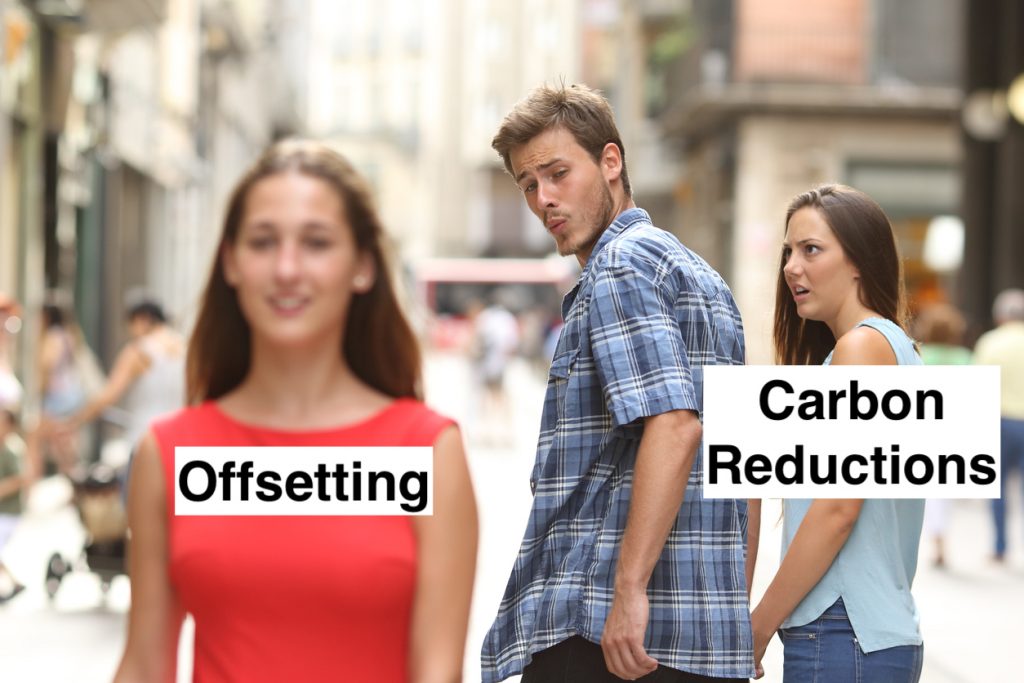Net Zero: does offsetting really distract from carbon reductions?

Original Photo © AntonioGuillem, meme by me!
One of the allegations flung at the Net Zero concept, and Carbon Neutral before it, is that the offsetting element acts like a get out of jail free card, letting polluters carry on emitting with their conscience clear. While that may sound superficially convincing, does it stack up in practice?
First thing I would say in response is that offsets aren’t free. They effectively add a voluntary carbon tax to the use of fossil fuels, adding to the economic pressure to drive down their use. If you as an individual decide to offset your own carbon footprint, that’s money you can’t spend on other polluting activities. As a bonus, that ‘tax’ is ring-fenced for environmental projects.
Secondly, research carried out by Ecosystem Marketplace found that companies buying offsets are almost four times more likely to have an approved Science-based Target (SBT) and three times more likely to include their Scope 3 (supply chain) emissions than average. OK, this research came from the industry itself, so isn’t truly independent, but it rings true to my experience. All the organisations I have worked with on Net Zero are focussing most of their efforts on substantial carbon reductions and I’ve never heard any of them say ‘let’s just buy a load of offsets’, even in jest.
Thirdly, under Net Zero, there is a much bigger focus on carbon reductions than under its predecessor Carbon Neutral. Unfortunately there is no set ratio between reductions and offsets, but most organisations are aiming for somewhere between 80 and 100% reductions with the offsets being used to mop up the reminder – the SBT mentioned above usually require a minimum of 90% emission cuts.
I maintain that the offsetting concept is ethically sound – in theory. However, in practice there is a huge challenge in ensuring the offsetting scheme actually removes the promised amount of carbon from the atmosphere above and beyond what would have happened without the offset payment (the dreaded ‘additionality’). But even there we need to be careful not to let perfection get in the way of success – if a scheme is delivering environmental benefits (eg a sensitively planted woodland enhancing biodiversity and/or providing flood protection) does it really matter if it doesn’t deliver the full carbon reduction being purchased?
My view is we need to make the SBT 90% a standard reduction target and not sweat so much about the other 10%.
Check out our new course Everything You Need to Know About Net Zero here.

